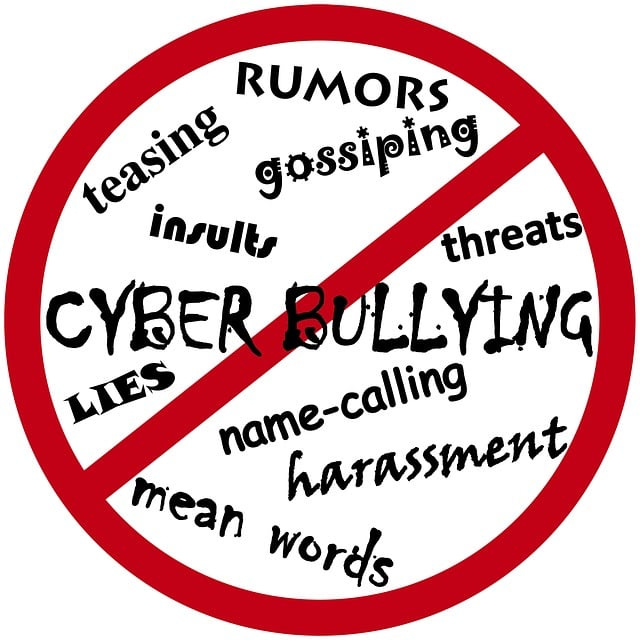This is one of countless tragic stories in the United States and around the world:
The Cyberbullying Story: In October 2012, ABC News reported that the video Amanda Todd had posted to YouTube had been viewed over 17 million times. In the video entitled “My story: Struggling, bullying, suicide, self-harm,” the British Columbia teenager uses flash cards to tell about her experiences of being blackmailed and bullied. A little over a month after posting the video on September 7, 2012, Amanda hanged herself in her home on October 10, 2012. Amanda began video chatting in the seventh grade to meet new people online.
April 25, 2022 — A 15-year-old boy named Nate Bronstein was enrolled at one of the most prestigious private schools in Chicago and had a promising future
American Academy of Psychiatry and the Law, 2023:
"The incidences of both cyberbullying and adolescent suicide are rising in the United States, with recent Centers for Disease Control and Prevention data showing that 14.9 percent of adolescents have been cyberbullied and 13.6 percent of adolescents have made a serious suicide attempt."
In today's digital age, social media has become ubiquitous in young teens' lives, offering them unprecedented connectivity and platforms for self-expression. However, alongside the benefits, there's growing concern about the psychological effects these platforms have on the younger generation.
Social media's attractiveness to young teens lies in its promise of instant connectivity and a space for self-expression. Platforms like Instagram, Snapchat, and TikTok allow teens to share their lives, thoughts, and creativity with a wide audience, contributing to forming their identities and developing their social skills. However, the very features that make social media appealing also present significant challenges to young users' mental health.
Cyberbullying refers to the use of digital platforms, such as social media, instant messaging, emails, and websites, to harass, threaten, embarrass, or target another person, particularly among younger demographics. For young teens, this form of bullying is problematic because of their developmental stage, their vulnerability, and their frequent use of online platforms for social interactions.
Unlike traditional bullying, cyberbullying allows the perpetrator to hide behind a screen, potentially remaining anonymous, which can encourage the aggressor and make it more difficult for the victim to escape or confront the bullying. The effects of cyberbullying on young teens can be profound, including emotional distress, anxiety, depression, a decline in academic performance, and, in severe cases, it may lead to self-harm or suicidal thoughts.
Cyberbullying among young teens shows up in various forms, such as spreading rumors online, sharing embarrassing photos or videos without consent, sending threatening messages, or creating fake profiles to mock or impersonate someone. The pervasive nature of digital technology means that cyberbullying can occur at any time and any place, extending the reach of bullies beyond the schoolyard and into the safe spaces of young teens' homes.
Efforts to combat cyberbullying involve:
Education on digital etiquette.
Promoting empathy and respect online.
Implementing strict social media and gaming platform policies to report and address bullying behavior.
Parents, educators, and peers play crucial roles in supporting victims of cyberbullying, fostering open communication, and teaching young teens how to navigate online spaces safely.
Establishing open lines of communication is important. It encourages children to talk about their online experiences and reassures them that they can approach their parents without fear of judgment or punishment if they are bullied online. While respecting their child’s privacy, parents should know their children's online activities, including which sites they visit, who they interact with, and what content they post or share.
Employing parental controls and privacy settings on devices and social media can help shield children from inappropriate content and potential cyberbullying. Parents should guide their children on behaving responsibly online, including not sharing personal information, thinking before posting, and treating others respectfully.
Educating children on navigating the internet safely, recognizing online risks, and understanding the importance of digital footprints can empower them to make smarter choices online. Demonstrating positive online behavior, such as being respectful in digital communications and using social media responsibly, sets a good example for children to follow.
If a child is being cyberbullied, parents should know how to take appropriate action. This may involve documenting the bullying, reporting it to the relevant authorities or platforms, and seeking support from the school or professional counselors if needed.
Protecting children from cyberbullying is a collaborative effort that requires parents to be engaged, supportive, and informed about their children’s online world. By fostering a safe and open environment at home regarding internet use, parents can significantly mitigate the risks associated with cyberbullying and help their children navigate the digital world with confidence and respect.
It's important for those experiencing cyberbullying to seek help from trusted adults, mental health professionals, or anti-bullying organizations. Likewise, there is a growing emphasis on educating young people about the responsible use of digital platforms and the importance of empathy and respect in online interactions. Parents must play a direct role in reaching out for help. Remember, the lives of your teenage children are at risk.





A strong spiritual life is also great protection for any child. If you're raised in a family that values you, that has good communication and can listen and support you, that's a huge advantage.
My children will not be allowed unfettered access to these things until they are emotionally ready. They just don't need that. Worst part, so much of the bullying is done by adults. Studies have show being divorced from face to face will even make sweet gran into a a keyboard bitch.